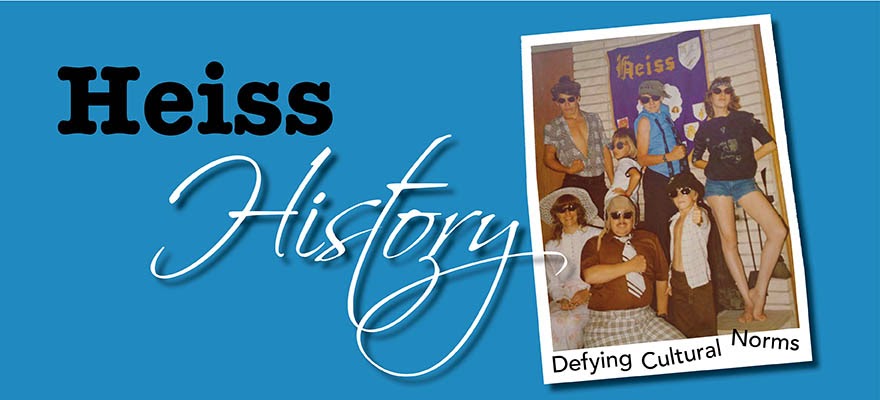To be fair, scouting advocates many positive things – faith,
loyalty, honesty, service, and so on. So it made sense that a Church, trying to
find a vehicle to engage its young men that was positive and exciting, turned
to scouting.
Scouting had its heyday in the church up until about the
1960s. But from the 1960s to the 1980s, the nation’s attention towards scouting
as well as that of the young men of the Church began to wane. Life changed and
scouting fell behind. That is not to say the values of scouting were any less
important. These are still great values.
But the need for uniforms and para-military order gave way
to a more technologically advanced and media dependent culture. The youth had
entertainment and media options that didn’t exist the golden years of scouting.
The competitive nature of our society also trumped scouting.
Sports, academics, performing skills, among other activities were added to the
youth’s schedules. These things pushed out the need for scouting. Merit badges
gave way to soccer camps. Camping gave way to high ACT or SAT scores. There was
just no room for the pastoral views of scouting.
The Church tried to balance their support of scouting by changing
the Young Men’s program to keep pace. Prior to these changes, a scout troop
could consist of boys from age 12 to 18. In an idyllic situation, these
different age groups worked together to create a strong community that
transcended scouting and helped boys bond together.
But the pull of society was peeling away the 14-18 year olds
and diluting the scouting experience. So, the church decided to dissect the
program. Scouts were reserved for the Deacon’s quorum (ages 12-14). When a boy
entered the Teacher’s quorum (ages 14-16), they became Varsity Scouts. When
they turned 16 and entered the Priest quorum they became Venture Scouts.
Now, on paper this looked good. Boys can continue their scouting
experience up until they turn 18. But in reality, Varsity Scouring and Venture
Scouting failed miserably. Once a boy turned 14 his scouting days were over. If
he wanted to advance in scouting, he had to go it alone.
This meant the need for achieving Eagle (scouting’s highest
award) had to be done before the boy was 14. If he was not Eagle or really
close to being Eagle by 14, he was not going to achieve that rank. This
accelerated the need for rapid advancement and diminished the more lasting
impact of scout – community.
What further destroyed the community of scouting was dividing
it into the three groups. Now the Scouts only associated with 12-14 year olds.
They had no connection with boys in the other two groups. This created a caste
system that made scouting, for older boys, all the more unattractive. No one
would be caught dead in a scout uniform once they turned 14. That was for Deacons.
As my dad says, scout troops became merit badge factories.
The need to achieve meant that little real learning was going on as boys earned
merit badges. Scout Masters felt that success in scouting was determined only
by the number of Eagles they could manufacture. But why the need for being an
Eagle?
Well, that get’s back to my previous post on scouting. There
is the foolish tradition that a boy who achieves Eagle will be more likely to
advance in the Priesthood, serve a mission, and marry in the temple. I am sure
those advocating this correlation can show statistical proof. However, it would
be just as simple to show that scouting has no statistical influence in such
important makers in a boy’s life.
This fallacy of tying advancement in scouting to personal
worthiness is even less persuasive when attending a handful of poorly taught
classes in a cultural hall of a local church makes Eagles. Indeed, the Eagle
became a commodity and not an award that challenges the youth.
I am convinced the Church saw that scouting had a short
shelf life and that too few boys were being helped and too many resources were
being wasted. Also, the Church became largely international. Scouting, though
in many countries in the world, became excess baggage on an international
stage. As a result of the waning power of scouting and the heightened need of
the young men to have something to help them survive their teen years, the
church developed the Duty to God program.
Now the Duty opt God award has been a part of LDS scouting
forever. But now the Church developed that award into a six-year program that deemphasizes
merit badges and more closely aligned the program with the Church’s values.
With this award independent of the Boy Scouts, the Church had greater leeway to
really use its influence to bless the lives of their Aaronic Priesthood youth.
But, change in the Church can be slow at times. The huge fortress
of scouting was not going to release is grips on the Church. So the Brethren admonish
wards to run both programs simultaneously.
Well, that failed, for the most part. Trying to hang on to
dying scout program diluted the efforts to truly develop the Duty to God
program. Likewise, a heavy and serious investment in the Duty to God program
would weaken scouting.
This is where we are now. There is still pressure to run
both programs but there is no value in scouting investment. I feel that
scouting program is obsolete and should have no place in the Church. My hope is
that the Brethren will see the problem with this dichotomy and abandon scouting.
But only time will tell.





No comments:
Post a Comment